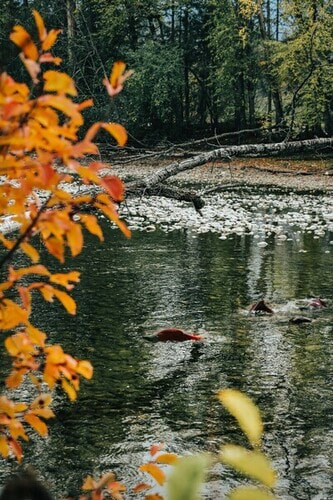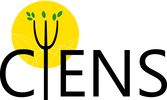
For Indigenous people, culturally important food from local food systems (i.e., fish, fowl, game and plants) has vital nutritional, cultural, symbolic and spiritual value. Since 2004, the Okanagan Nation Alliance (ONA) in British Columbia (BC) has been working on the Sockeye Reintroduction to Skaha Lake Project and other habitat restoration initiatives to increase the number of salmon in the Okanagan. Scientific evidence of increased salmon numbers resulted in an increase in fish harvesting in ONA communities since 2012. The salmon restoration initiatives operate outside of the health sector yet have the potential to impact population health by improving health and nutrition, as well as modifying the determinants of health.
This study of three BC ONA reserve communities will estimate the health, health determinant and cultural outcomes of this First Nations-led ecosystem revitalization intervention and accompanying cultural activities. We aim to achieve the following objectives. 1. Estimate changes in socioeconomic factors, traditional food consumption, cultural connectedness, self-determination, diet quality, food security, and risk factors for obesity, diabetes and heart disease. 2. Explore how and why salmon revitalization efforts benefited community members. 3. Examine the contextual elements (e.g., community engagement, political leadership) that made salmon revitalization initiatives successful. 4. Document if the salmon revitalization initiatives resulted in different health outcomes for certain groups, such as men and women, and younger and older adults. 5. Estimate the cost of salmon revitalization initiatives and accompanying cultural activities. 6. Maximize opportunities for ONA, BC First Nations Health Authority, and other Indigenous communities and agencies to use the findings to support health and nutrition programming, garner financial support for future fisheries programs, and make traditional foods accessible through ecosystem recovery efforts
Principal investigators: Université de Montréal (Malek Batal), University of Alberta (Noreen Willows), Okanagan Nation Alliance (Pauline Terbasket) and participating communities.
Investigator: Rosanne Blanchet, Université de Montréal.
This study of three BC ONA reserve communities will estimate the health, health determinant and cultural outcomes of this First Nations-led ecosystem revitalization intervention and accompanying cultural activities. We aim to achieve the following objectives. 1. Estimate changes in socioeconomic factors, traditional food consumption, cultural connectedness, self-determination, diet quality, food security, and risk factors for obesity, diabetes and heart disease. 2. Explore how and why salmon revitalization efforts benefited community members. 3. Examine the contextual elements (e.g., community engagement, political leadership) that made salmon revitalization initiatives successful. 4. Document if the salmon revitalization initiatives resulted in different health outcomes for certain groups, such as men and women, and younger and older adults. 5. Estimate the cost of salmon revitalization initiatives and accompanying cultural activities. 6. Maximize opportunities for ONA, BC First Nations Health Authority, and other Indigenous communities and agencies to use the findings to support health and nutrition programming, garner financial support for future fisheries programs, and make traditional foods accessible through ecosystem recovery efforts
Principal investigators: Université de Montréal (Malek Batal), University of Alberta (Noreen Willows), Okanagan Nation Alliance (Pauline Terbasket) and participating communities.
Investigator: Rosanne Blanchet, Université de Montréal.

